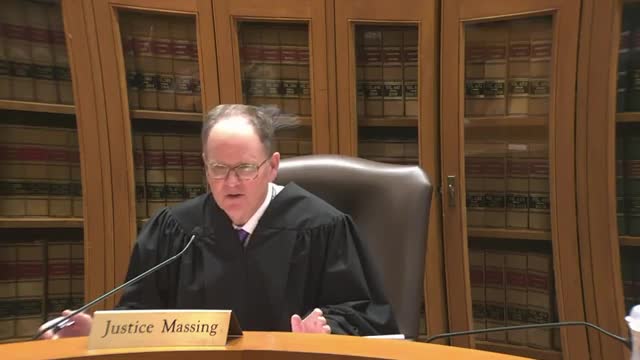Appeals court hears challenge to termination of parental rights after domestic‑violence and substance‑use findings
October 10, 2025 | Judicial - Appeals Court Oral Arguments, Judicial, Massachusetts
This article was created by AI summarizing key points discussed. AI makes mistakes, so for full details and context, please refer to the video of the full meeting. Please report any errors so we can fix them. Report an error »

The Massachusetts Appeals Court took oral argument Oct. 10 in a challenge to a juvenile-court decree that terminated a father’s parental rights after a multi‑year care and protection proceeding involving domestic violence and substance misuse.
Jennifer DeFeo, representing the father, argued the juvenile court gave insufficient weight to post‑removal progress: sobriety documented by clean urine screens over many months, therapy participation, and favorable collateral reports from treatment providers and social‑service groups. DeFeo said the department of children and families controlled much contact and that delayed or limited in‑home visits by DCF obscured evidence of changed circumstances; she urged remand for further hearing rather than termination.
Assistant general counsel Kristen Braithwaite, appearing for DCF, told the panel the juvenile court permissibly relied on the totality of the record, including prior severe domestic‑violence incidents, inconsistent parental testimony, and the parents’ lack of candor to investigators. Braithwaite emphasized the court’s concern about continued entanglement—transportation, shared pets and other contacts—after removal, the parents’ varying statements about their relationship and an incident in May 2023 that the juvenile court considered evidence of ongoing conflict.
Counsel for the child urged deference to the trial judge’s credibility findings and stressed that mere participation in services does not establish a sufficient remedial change when violence and lack of transparency remain. The panel questioned whether the juvenile court properly discounted the ongoing social worker’s favorable collateral reports when the worker had served only a short time on the case, and whether any criminal charges near the time of trial affected the judge’s evaluation of future risk.
After argument the panel took the appeal under advisement.
Jennifer DeFeo, representing the father, argued the juvenile court gave insufficient weight to post‑removal progress: sobriety documented by clean urine screens over many months, therapy participation, and favorable collateral reports from treatment providers and social‑service groups. DeFeo said the department of children and families controlled much contact and that delayed or limited in‑home visits by DCF obscured evidence of changed circumstances; she urged remand for further hearing rather than termination.
Assistant general counsel Kristen Braithwaite, appearing for DCF, told the panel the juvenile court permissibly relied on the totality of the record, including prior severe domestic‑violence incidents, inconsistent parental testimony, and the parents’ lack of candor to investigators. Braithwaite emphasized the court’s concern about continued entanglement—transportation, shared pets and other contacts—after removal, the parents’ varying statements about their relationship and an incident in May 2023 that the juvenile court considered evidence of ongoing conflict.
Counsel for the child urged deference to the trial judge’s credibility findings and stressed that mere participation in services does not establish a sufficient remedial change when violence and lack of transparency remain. The panel questioned whether the juvenile court properly discounted the ongoing social worker’s favorable collateral reports when the worker had served only a short time on the case, and whether any criminal charges near the time of trial affected the judge’s evaluation of future risk.
After argument the panel took the appeal under advisement.
View full meeting
This article is based on a recent meeting—watch the full video and explore the complete transcript for deeper insights into the discussion.
View full meeting
